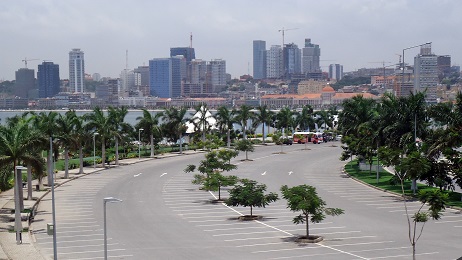
Angola’s growth outlook boosted by oil price, policy shifts

Angola’s economic growth prospects are on the rise as higher oil prices and sounder policies under President Joao Lourenco bring greater stability to Africa’s second biggest crude exporter.
The International Monetary Fund says Angola’s economy is expected to expand by 2.25 percent this year from 1 percent in 2017 and growth should reach 5 percent in the medium-term.
Velloso said Lourenco’s government had already supported the economy by devaluing the kwanza currency, promising to reduce debt and restructuring state oil company Sonangol. He also said higher oil prices had helped.
“The Angolan economy is experiencing a mild recovery. The new administration is rightly focusing on restoring macroeconomic stability and improving governance,” said Ricardo Velloso, IMF division chief for Africa.
“Over the medium term, the outlook is for continued gradual recovery in economic activity but there are risks, including a decline in oil prices and slippages in implementation of the structural reforms to promote economic diversification.”
The IMF does not think a bailout is necessary despite Angola’s heavy debt burden and high inflation, saying Lourenco’s reform plans and a buoyant global debt market should help stabilise public finances, Velloso said.
The IMF supports the Angolan government’s policy of extending maturities on debt rather than restructuring, he said.
“With the higher oil price and decent access to external financing for frontier and emerging markets there isn’t a need for IMF financing for Angola,” Velloso said in response to a question about a possible bailout.
“Obviously if we receive a request we will analyse it with care like with any member country of the IMF.”
Inflation was expected to reach 24.75 percent year-on-year by the end of the year compared to 22.72 percent in January, the IMF predicts.






